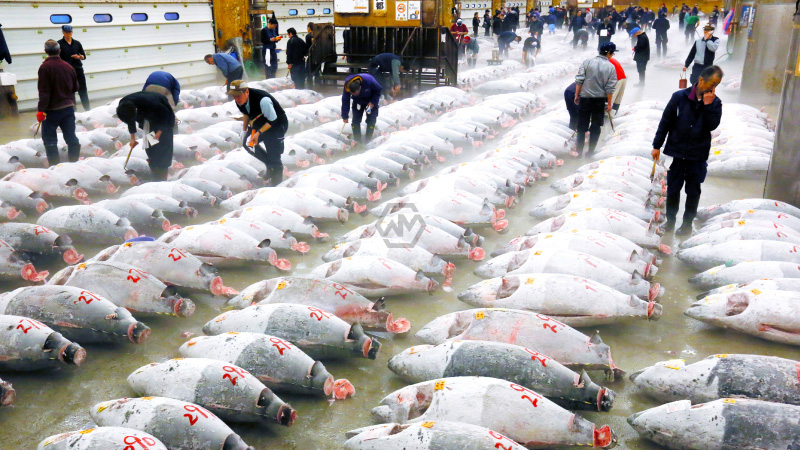- Due to the release of treated and diluted radioactive effluent into the ocean, fish auction prices at a port were varied.
- The long-term release has been sharply criticized by neighboring nations and fiercely resisted by Japanese fishing organizations.
- Tepco: the release won’t happen for 30 years, or until the decommissioning of the plant is complete.
Due to the ambiguity around how seafood consumers will react to the release of treated and diluted radioactive effluent into the ocean, fish auction prices at a port south of the Fukushima Daiichi nuclear power station were varied.
Despite opposition at home and in neighboring nations, the facility, which was damaged in the 2011 earthquake and tsunami, started pumping clean water into the Pacific on Thursday.
A leak of radioactive water
The first auction after the water release started on Friday morning saw a more than 10% decrease in the cost of larger flounder, also known as Joban-mono, the emblematic fish of Fukushima.
The long-term release has been sharply criticized by neighboring nations and fiercely resisted by Japanese fishing organizations. Thousands of South Koreans protested in Seoul over the discharge of sewage and demanded that Japan keep radioactive water in tanks rather than discharge it into the Pacific Ocean.
As radiation data is now a crucial indicator for what to eat, a citizens’ radiation testing center in Japan is receiving inquiries and anticipates an increase in the number of individuals bringing in food, drink, and other samples.
The water needs to be discharged, according to the Japanese government and the plant’s operator, Tokyo Electric Power Company Holdings, to decommission the facility and avoid unintentional leaks of inadequately treated water.
Radiation levels in a large portion of tank-held water still exceed allowable limits. Authorities claim that after treatment and dilution, the effluent is safer than required by international standards and that there will be little environmental impact.
In contrast, there is a lot of animosity and mistrust in Fukushima, particularly among the fishing population. According to Tepco, the release won’t happen for 30 years, or until the decommissioning of the plant is complete. This could indicate a difficult future for young people in the fishing village where many enterprises are operated by families.



